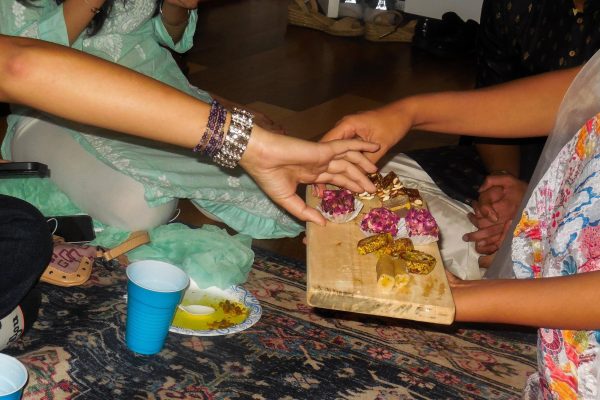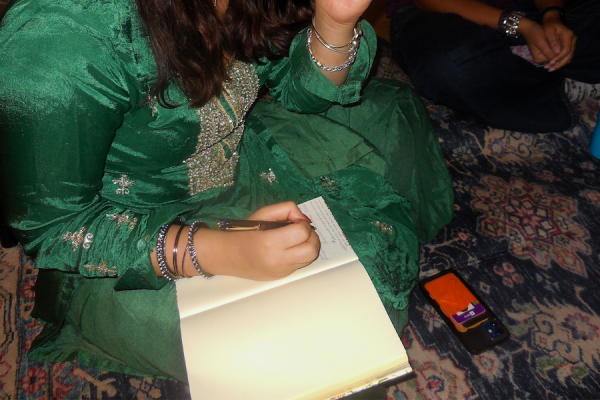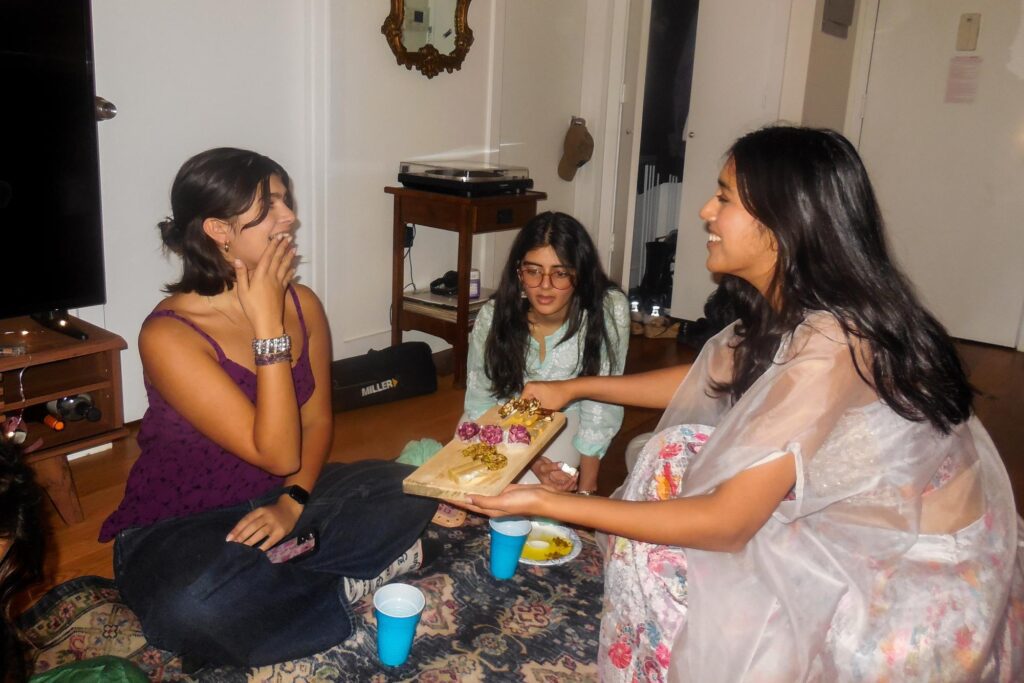Diwali, also called the Festival of Lights, is celebrated every year between October and November by South Asian communities across the globe. Although Diwali is widely regarded as a Hindu festival, my family is Jain and celebrates the holiday to commemorate the end of the year and the triumph of light over darkness.
Since last year, rather than at my family’s home in California, I have hosted Diwali in the common space of my East Village apartment. I wanted to find a way to host a party in a way that was both meaningful and genuine, but I struggled, at first, to find the right balance between a celebration that was true to myself and true to the holiday.
My parents were born and raised in India and immigrated to the United States in the ’90s. They brought me up in the Bay Area, so I grew up as an ABCD — American-born confused Desi — and I always thought of Diwali as a purely religious holiday. I could barely even speak broken Hindi, and I knew next to nothing about Jainism besides my family’s occasional temple visits, where I would pray to a god whose name I didn’t know how to pronounce. I would usually spend Diwali in crowded rooms of family friends I hardly knew, dressed up in a lehenga and bangles that I felt uncomfortable in. I always felt like I was simply going through motions, celebrating a holiday I didn’t quite understand because it was a way to somehow prove that I was Indian enough.
On the eve of Diwali, though, my family would have a home-cooked dinner and then set up our living room for pooja, or prayer. My older sister, mom, dad and I sat on a bedsheet spread out on the floor in dim lighting surrounded by diyas, which are small candles made from clay with a cotton wick, set up next to a statue of Ganesha, the deity of beginnings, on a wooden table. I would close my eyes as my parents read aloud prayers in Hindi that I didn’t really understand, but still felt comforted by as they would patiently and carefully translate them to English. After praying, my dad would pass around a family journal that we wrote in every Diwali — each filling up a page with our gratitudes from the past year and what we were looking forward to in the year to come.

These moments of gathering for a family meal, peaceful togetherness and reflection are what I remember most fondly of Diwali during my childhood years, and that was what I felt most committed to when creating my own tradition for celebrating the holiday by myself for the first time. So, I took the 6 train up to Murray Hill to buy Indian snacks for appetizers — my favorite being kachori, a fried puff pastry stuffed with lentils and potatoes that originates from my family’s home state, Rajasthan. My next stop was ordering biriyani and gobi manchurian from an Indian restaurant for the main course before picking up a box of assorted mithai, or Indian sweets, that my parents shipped to serve for dessert. My errands ended at the stationery store, where I found a journal with gold-trimmed pages and a patterned cover that I decided would be my version of my family’s Diwali journal.
The day of my first party, I tried to find everything I owned in my apartment that lit up — Diwali is the Festival of Lights, after all. I brought a lamp and a string of fairy lights to my common room, and I arranged all the food on the kitchen table. Taking a step back, nothing about the scene really screamed Diwali to me. It didn’t look Indian enough. And it didn’t look like my living room at home, with real diyas and the safety of my parents’ prayers. But I tried to push away any doubts I had as I waited for guests to arrive.

I had invited everyone to wear Desi attire, and I put on a playlist of mellow Hindi songs to set the scene. People started to arrive, and my worries quickly faded as I saw all my guests starting to fill up their plates with food and compliment each other’s kurtis and lehengas. Everyone made their way to the couch and carpet to find places to sit and talk with each other, and the party slowly started to look more like what I wanted Diwali to be about — togetherness, warmth and connection.
My favorite part of the night was when I got to share the journaling tradition with my guests, and I was pleasantly surprised at how excited everyone was to write in their entries. That night, I prayed with the pages of the journal open, giving my blessings to all the aspirations, hopes and reflections my loved ones had written about — the same way my parents used to pray for mine.
Proudly, now, I celebrate Diwali. Not because I’m obligated to, or because I’m not Indian or Jain enough if I don’t. But because, from the bottom of my heart, I love celebrating a holiday that encompasses warmth, light, new beginnings and bringing loved ones together. Being from an immigrant family means that there is a constant pick-and-choose of which traditions will be brought to America and which won’t, and, to this day, I am grateful that my parents kept this one.
To me, Diwali is not about rigid traditions or getting things right. It’s about honoring the country that my parents are from, the culture that has made me who I am and the community that has taken care of me for my entire life.
Contact Anjali Mehta at [email protected].

